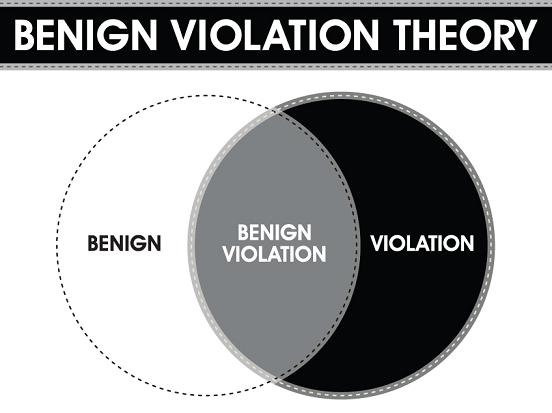Finding humor in ‘benign violations’
By Miles Doornbos

Finding humor in ‘benign violations’
By Miles Doornbos
We’re living in the golden age of comedy theory. Thanks to the podcast boom spearheaded by Marc Maron’s obscenely good WTF, we are inching closer and closer to understanding not only how comedians tell jokes, but why. Podcasts like Maron’s (and Pete Holmes’ You Made it Weird) offer us insight into what makes things funny, as processed through the people doing and saying the funny things. Their interviews are complex, frustrating and detailed. Yet, even at their most penetrating, there’s still some mystery left. Maybe humor isn’t something that can be pinned down like so many insects on a peg board.
Dr. Peter Mcgraw begs to differ.
Peter (as he prefers to be known) has spent the past two years trying to find out, scientifically, what makes something funny. And, he thinks he’s found the answer: what he calls “benign violations.”
Peter and his colleagues at The Humor Research Laboratory (HuRL), have concluded that all humor springs from violations that don’t put us in any direct harm. In effect, if something is both benign and a violation, it’s inherently funny. HuRL feels it’s found a flawless theory, one that fits every brand of comedy. As for the practicality of it, well, that’s where journalist Joel Warner comes in.
Joel first heard about Peter and HuRL during a Tedx conference in Colorado and was fascinated by an (admittedly funny) consumer psychologist who claimed to have cracked the comedy code. After reporting on Peter bombing an open mic and interrogating an increasingly uncomfortable Louie CK, Joel formed The Humor Code with him. Together, the two of them test the Benign Violation theory, and span the globe, searching for what truly makes us laugh.
Both Peter and Joel will be on Eight Forty-Eight today to talk about their findings, the future and why your family just doesn’t appreciate your bound collection of “knock, knock” jokes.
